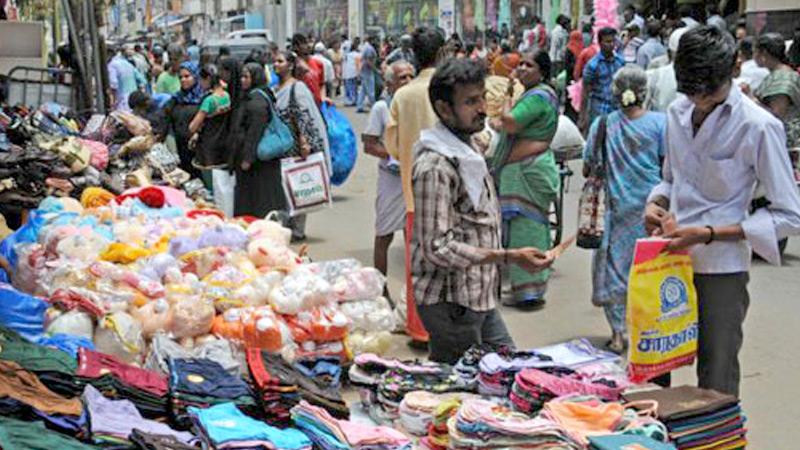
As the current global pandemic continues to strangle the world economy, top brass of the government, policy makers and economists in Sri Lanka said, this year would be one of the worst years for the economy with growth unlikely to cross one percent.
Treasury Secretary S.R. Attygalle said this year would be an extremely tough year for Sri Lanka adding that if the current crisis continues for another five to six months the economy would be in a precarious condition.
“The entire world has been shut down and in such a scenario it is the worst that one could expect. All major economic activities here have come to a halt and if the trend prolongs there will be dire consequences to the economy,” he said adding that it could be bit too early to predict growth figures and the time lines for bouncing back.
Former Central Bank Senior Deputy Governor Dharma Dheerasinghe said the initial growth projections of 3.5 to 4 percent this year will no longer be valid under the current scenario which is unprecedented.
“Sri Lanka recorded around 2.7 percent growth last year and projections were that we would reach around four percent economic growth this year. This projections will have to be revised as all major revenue sources such as foreign remittances, tourism, garments and tea exports have been hampered badly,” Dheerasinghe said, adding that the country will have to adopt a new economic model which is more inward looking to face the post Covid -19 era challenges.
He said an inward looking approach should focus on the rural economy which has taken the worst hit from the present crisis and the small and medium sector industries.
Commending the efforts taken by the Government with the Central Bank to stimulate the economy he said such measures will help ease the pressure on the economy while supporting the affected sectors but long term plans are crucial to tide over the crisis.The Central Bank has set up a six-month re-financing facility to support Covid-19 hit self employment businesses and individuals last week which comprises a debt moratorium (capital and interest) and a working capital loan at the interest rate of 4% per annum.
The bank also implemented Extraordinary Regulatory Measures to facilitate banks to support COVID-19 affected businesses and individuals.
On the need to seek a bailout package from a donor, Dheerasinghe said given the strain on the Government to fund sectors to support the economy, resuming negotiations with the IMF urgently is crucial to address the balance of payment gaps and keep the economy afloat.
Former Central Bank Director Vincent Mervyn Fernando said the Sri Lankan GDP will be in the range of 1% or even less this year.
Central Bank Governor W.D. Lakshman said all economic stimulation measures have been taken to get over the present crisis in a short period which is vital to keep the nose above water.
“We introduced a raft of concessions to enable investors and the business community carrying on businesses without interruptions and in the long run to get out of the current mess,” he said, adding that GDP growth would decline this year. Moody’s and the IMF had forecast 2.8% GDP for Sri Lanka this year before the coronavirus struck.Cabinet Spokesman and Minister Bandula Gunawardene said last week that the apparel sector will lose around USD 2 billion from March due to the disruption to the supply chain in Europe and the US.
A global economic recession has been projected by global think tanks which have downgraded forecasts for regions and countries.
The World Bank said last week that the coronavirus outbreak may have a heavy toll on Asia’s economy and that under a worse-case scenario the region would slow to 2.1% this year from 5.8% in 2019 under a ‘baseline’ forecast in which economic recovery takes hold this summer.
Wide ranging stimulant measures have been taken across countries to prevent the economy crumbling further.
The USA launched the largest-ever US financial stimulus package, worth $2tn (£1.7tn) as the country grapples with the coronavirus pandemic.Markets across the globe have crashed since the outbreak of the killer virus early this year.
The FTSE, Dow Jones Industrial Average and the Nikkei have all seen huge falls since the outbreak began on 31 December. The Dow and the FTSE recently saw their biggest one day declines since 1987.
Key economic sectors such as travel have been badly hit with airlines slashing flights and tourists cancelling business trips and holidays.Governments around the world have introduced travel restrictions to try to contain the virus.
The EU banned travellers from outside the bloc for 30 days in an unprecedented move to seal its borders because of the coronavirus crisis.
